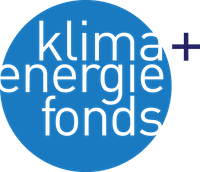STOR-E – Advanced Electrical Storage Facilities to become Economically and Environmentally Sound
Initial Situation – The objective of STOR-E is to develop and design a cost- and energy- efficient mid- to long term storage of electrical energy based on compressed air for small scale applications.Currently compressed air energy storage (CAES) is the most probable solution that is able to match the characteristics of low investment costs with fewer restrictions (no degradation like batteries or no topographical needs like storage hydro power stations).
Particular Objectives – The objectives of STOR-E are to develop and design a technology enabling cost-effective and efficient storage of electrical energy through the medium of compressed air. Three prototypes are envisaged to be developed and designed for the identified integration scenarios within the municipality Hartberg. Specific targets for this new technology are: ● Electrical storage facilities with efficiency degrees of more than 60%. ● Back-up start-up times of less than 3 min and power ramps in operation > 50%/min based on electrical demand of three representative sites within the municipality of Hartberg. ● The provision of ancillary services as a small-scaled decentralized application that serves as emergency power system respectively auxiliary generator. ● No CO2 emissions and low acoustic emissions to allow implementing STOR-E facilities at urban areas at a later stage.
Evidence – Energy is a major determinant of economic growth. Austria’s energy supply is characterised by structural weaknesses and shortcomings, particularly regarding security of supply and climate change. Energy supply security, mitigating climate change and economic competitiveness are therefore the main drivers for energy research, within the context of sustainable development. Due to the advantageous situation of Austria, with vast biomass and water resources, the electricity demand of the country is covered by app. 50% of locally available renewable energy sources. Nevertheless the coverage of peak load, grid related problems arising from increasing share of renewables and future demand changing (e-mobility, changing consumer behavior etc.) become major issues.
Methods – Local analysis and discussion were already performed with all relevant parties to get a clear vision of the project and expected specific outcomes. Especially the municipal utility of Hartberg appreciates the project very much as it will provide an additional possibility to promote renewable energy sources in their local territory and to work together with a highly professional technology provider consortium. In order to achieve the envisaged objectives described above in the most efficient way, the chosen approach relies on three pillars: A good and efficient project management, a sound methodology based on the following basic principles and jointly agreed quality assurance measures: ● Ensuring the successful achievement of project goals and timely provision of deliverables in the most cost-effective manner. ● Identifying demands from different types of end-user scenarios (industrial/commercial, wind park, PV integrated in branch lines). ● Establishing a reliable technical and information base in relation to electricity storages to guarantee optimised procedures for detailed planning and technical design. ● Addressing all technical aspects regarding the engineering of the three planned STOR-E devices with all components.
Work plan – For achieving the envisaged objectives described above in the most efficient way, the chosen WORK PACKAGE structure relies on a sound and multidisciplinary content-related methodology:
- Ensuring the successful achievement of project goals and timely provision of deliverables in the most cost-effective manner incl. knowledge management & IPR protection.
- Identifying the initial situation (user requirements, technology related frame work conditions, and market related issues by taking into account lessons learnt from the EU-CONCERTO Solution project) for the establishment of a reliable basement of further project work with strong focus to the market.
- The development of the secure technical concept and design to guarantee optimised procedures for the demonstration.
- Definition of the economic and legal feasibility of the foreseen technology with respect to the proposed application sites/possibilities.
- Validating the given specification and testing the technical feasibility of creating prototype devices.
- Addressing all aspects regarding the demonstration of the STOR-E devices and subsequently validation as well as monitoring by means of the performance assessment methodologies for quality assurance measures.
Downloads
Steckbrief
-
Projektnummer829929
-
KoordinatoriC consulenten Ziviltechniker GesmbH
-
ProjektleitungKlaus Kogler, k.kogler@ic-group.org
-
FörderprogrammNeue Energien 2020
-
Dauer02.2011 - 07.2013
-
Budget35.948 €


